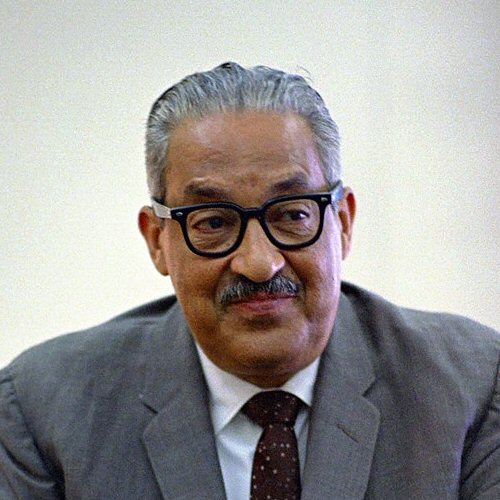 |
"Bias & Bigotry" |
||||
| More... |
Thurgood Marshall was born on July 2, 1908, in Baltimore, Maryland, into a family that deeply valued education and civil rights. His father, William Marshall, worked as a steward at an all-white country club, and his mother, Norma, was a kindergarten teacher. Inspired by his father, who took him to court cases to observe the legal process, Marshall developed an early interest in the law and civil rights. He attended Lincoln University for his undergraduate studies and later applied to the University of Maryland Law School but was denied admission due to racial segregation policies. This rejection fueled his determination to fight against racial injustice. Marshall instead attended Howard University School of Law, where he graduated first in his class. During the mid-20th century, America was deeply segregated, with Jim Crow laws enforcing racial discrimination, particularly in the Southern states. This period was also marked by the burgeoning civil rights movement, which aimed to dismantle the legal foundations of racial segregation. As an attorney for the NAACP, Marshall argued and won several key cases before the U.S. Supreme Court, significantly influencing the civil rights landscape. His most famous case, Brown v. Board of Education of Topeka, resulted in the landmark 1954 decision that declared state laws establishing separate public schools for black and white students to be unconstitutional, effectively overturning the "separate but equal" doctrine of Plessy v. Ferguson. Thurgood Marshall's appointment to the Supreme Court in 1967 as the first African American justice was a monumental step forward in the fight for equality. During his tenure, he continued to advocate for civil rights, supporting affirmative action, women's rights, and the rights of the accused. His legal philosophy and decisions emphasized fairness, the rights of the individual against the government, and the need to protect the vulnerable against discrimination. Marshall's legacy as a jurist and civil rights advocate highlights his profound impact on American law and society, reflecting his lifelong dedication to ensuring justice and equality for all Americans. His career not only transformed the legal landscape but also left an indelible mark on the history of civil rights in the United States. Reference: Wikipedia.org |
||||
|
|
